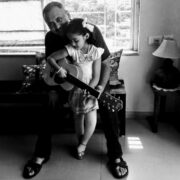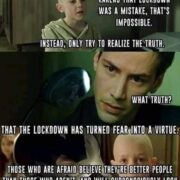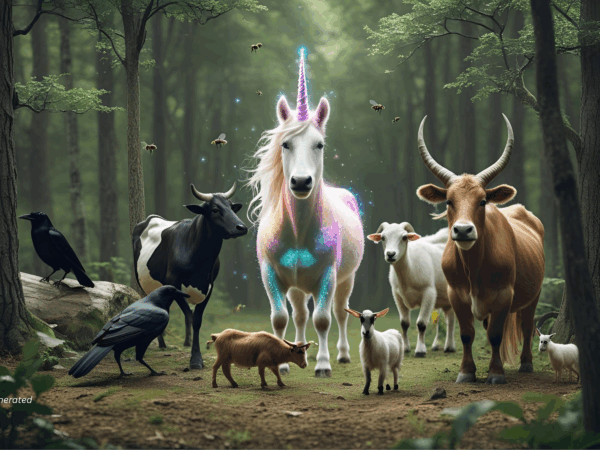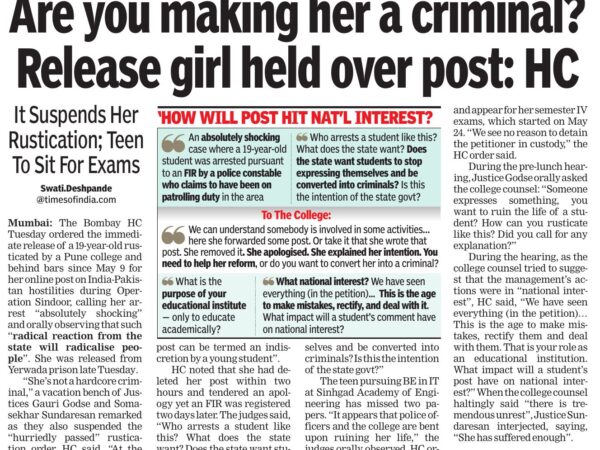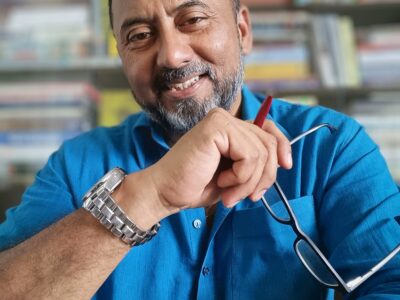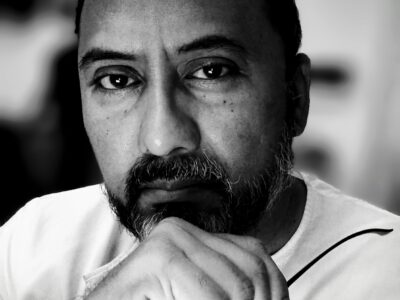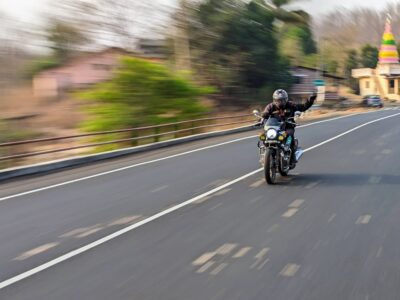This appeared first on LinkedIn.
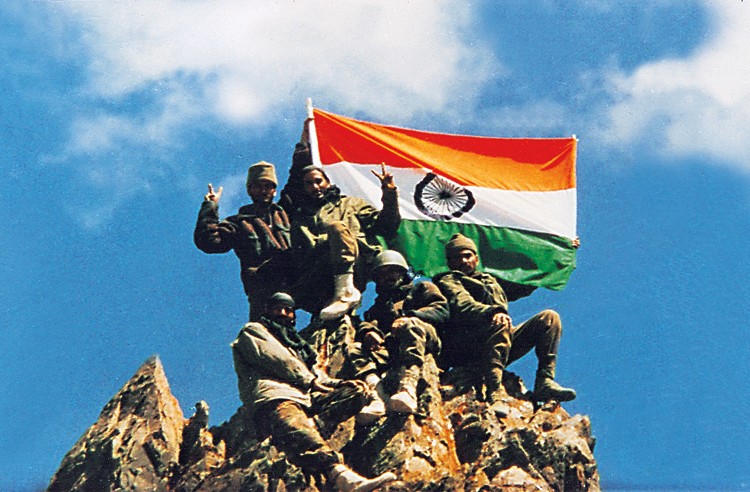
Indian Army soldiers fly the Indian flag from a peak in Drass after it was recaptured (July 1999).
When I look at the news and think of what must have happened to those men in the snowy, rocky heights of Ladakh, trying to comply with their government’s demands about not using weapons and at the same time, enforcing the integrity of our borders, I have a shiver running down my entire body, for it could very easily have been my own brother, my father, my uncle, my neighbour, my friend, my friend’s husband, my classmate, my roomie from college, and literally anyone of the dozens of boys and men I have met, befriended, dined with, partied, debated, travelled with, or gone through unforgettable experiences in my life. It could have been me. And I break out into cold sweat to think of the pain they must have felt as they were determined to do their duty as trained and as expected by the billion people they were carrying on their shoulders that day.
A little background: I passed my SSB, PABT, and medical to get a call letter to join the NDA in the Air Force branch, but had to toss with my kid brother (since only one of us was supposed to go, as the other was to take care of our parents in case something happened, which as everyone who knows me knows, it did) and lost. He joined. He was the second generation. My father served for 20 years as an officer and a pilot. I had many uncles who wore the uniform with pride. My wife’s relatives are former uniformed officers, now in various government and non-government jobs. My own classmates are in various branches. My friends call me from Nagaland and (at one time) Lebanon to say hello every week. My late brother’s friends, who still call me “Bhaiyya” keep insisting I come where they are posted and allow them to extend the same hospitality I did when I smuggled them out of the NDA and treated them to beer and tandoori chicken at my place (besides lending them civilian clothes and also letting them bring their girlfriends in). There are husbands of some of my friends who are at this very moment, posted in Ladakh. And I live in a military town in a military area surrounded by serving and retired officers and their families (as the serving ones are posted in non-family stations around the country). One single death can bring mayhem into this. And a death as brutal and as unexpected as what happened to those 20 men at Galwan can destroy the entire fabric of my society.
The point I am making is that I am too close to the deaths for me to be silent and let this slide. It could very easily have been literally any of half of the people I care about on a personal level. As I said, it could even have been me being beaten to death with wooden rods wrapped in barbed wire at 14,000 feet above MSL, dying alone, outnumbered, ambushed, betrayed, bleeding, hoping I died for something worth dying for.
That being said, let me also put something else on record: Almost every family, every mother, every wife, every child, every colleague, every friend, every sibling that these bravehearts leave behind are, in some way, ready for that phone call from the day their loved ones wear their uniform. After the initial shock wears off, they cope. They adjust. They adapt. Life goes on. Everyone helps.
But, what they are not prepared for is a death in vain. They are not prepared for dying due to incompetence. They are not prepared for a funeral without reason. They are not, in short, prepared for paying the cost without getting something in return.
And what is that which they, and the man who died in uniform, want more than anything else when the 6-foot-something strapping, muscular, young man returns in a tricolour-wrapped wooden coffin you are not allowed to open? What are those men who give up their lives fighting for? What is so important that it is worth dying?
Honour & Purpose.
Take that away, and what do you have?
The greatest insult we Indians (and our government and the defence services, diplomatic corps, and media) can heap upon the dead souls of our soldiers is to deprive them of these two reasons.
Today, when you have had your nice hot water bath, followed by a vigorous towel drying, and are spraying yourself with fancy deodorant as you stand in front of the mirror, I want you to take a deep look inside your eyes, and try and reach your own soul. I want you to ask yourself: Did these men die for something? If so, what?
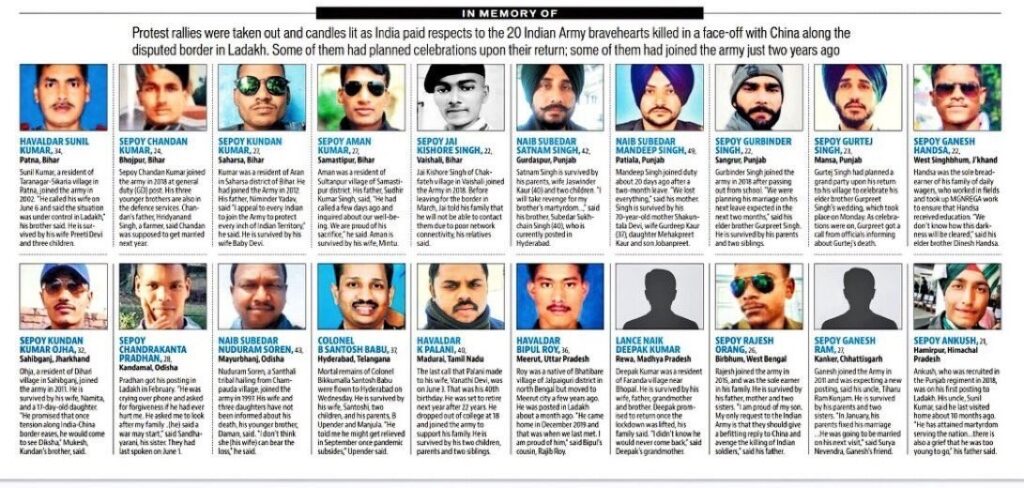
Bravehearts killed in the Galwan valley.
I am just going to put up the names of all 20 men here. Just so we remember that they were not some statistics. Remember them when you see a tricolour the next time or stand when the National Anthem is played. Jai Hind.
- Commanding Officer Colonel Bikumalla Santosh Babu from Hyderabad, Telangana
- Naib Subedar Nuduram Soren from Mayurbhanj, Odisha
- Naib Subedar Mandeep Singh from Patiala, Punjab
- Naib Subedar Satnam Singh (driver) from Gurdaspur, Punjab
- Havildar (gunner) K Palani from Madurai, Tamil Nadu
- Havildar Sunil Kumar from Patna, Bihar
- Havildar Bipul Roy from Meerut City, Uttar Pradesh
- Naik (Na) Deepak Kumar from Rewa, Madhya Pradesh
- Sepoy Rajesh Orang from Birbhum, West Bengal
- Sepoy Kundan Kumar Ojha from Sahibganj, Jharkhand
- Sepoy Ganesh Ram from Kanker, Chhattisgarh
- Sepoy Chandrakanta Pradhan from Kandhamal, Odisha
- Sepoy Ankush from Hamirpur, Himachal Pradesh
- Sepoy Gurbinder from Sangrur, Punjab
- Sepoy Gurtej Singh from Mansa, Punjab
- Sepoy Chandan Kumar from Bhojpur, Bihar
- Sepoy Kundan Kumar from Saharsa, Bihar
- Sepoy Aman Kumar from Samastipur, Bihar
- Sepoy Jai Kishor Singh from Vaishali, Bihar
- Sepoy Ganesh Hansda from East Singhbhum, Jharkhand
